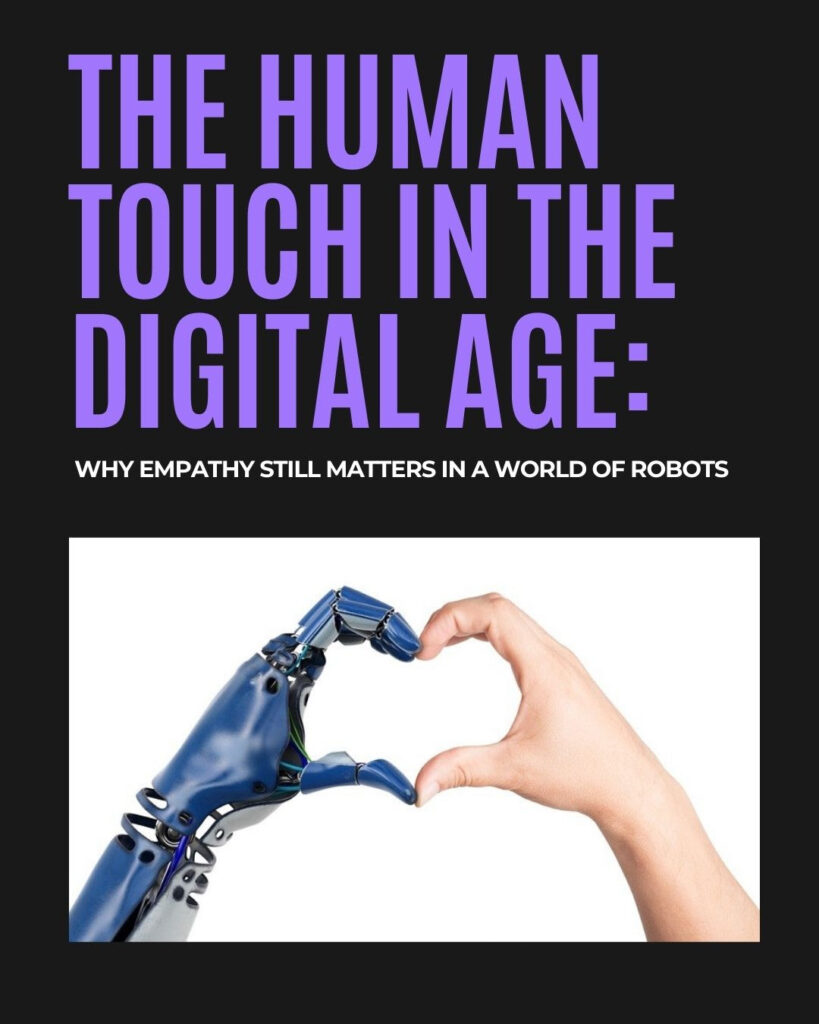
As technology races forward, weaving its tendrils into every aspect of our lives, a curious paradox emerges. While algorithms crunch data and robots automate tasks, the yearning for human connection deepens. In this digital orchestra, a vital instrument threatens to be muted: the human touch.
The digital age has undoubtedly brought tremendous benefits. Convenience reigns supreme, information is readily available, and communication transcends geographical boundaries. Yet, within this symphony of efficiency, something often goes missing: the warmth of a smile, the nuance of a gesture, the balm of genuine empathy.
Automation streamlines processes and algorithms to personalize experiences, but these cold calculations cannot replicate the subtle dance of human interaction. A chatbot, however sophisticated, cannot offer the solace of a listening ear, nor can a virtual avatar truly understand the complex tapestry of human emotion.
In a world driven by metrics and algorithms, prioritizing the human touch might seem counterintuitive. However, it is precisely in this digital landscape that genuine human connection becomes not just a luxury, but a necessity. Here’s why:
1. Fostering Trust and Loyalty: In an age of data breaches and misinformation, trust is a precious commodity. Human interactions, imbued with empathy and understanding, can build bridges of trust that cold algorithms simply cannot. A doctor’s reassuring touch, a teacher’s encouraging glance, these seemingly small gestures can create a human bond that fosters loyalty and long-term relationships.
2. Driving Innovation and Creativity: While AI excels at crunching numbers and optimizing processes, human creativity remains the engine of innovation. It is the messy spark of human interaction, the exchange of ideas, and the empathy that fuels collaboration, that leads to breakthroughs. When we value the human touch, we tap into the wellspring of human ingenuity, the very source of progress.
3. Navigating the Ethical Landscape: As technology evolves, ethical dilemmas multiply. Questions of data privacy, automation’s impact on jobs, and the potential misuse of AI require nuanced judgments and ethical considerations. Here, the human touch, guided by empathy and compassion, becomes crucial in navigating these complex challenges.
So, how do we cultivate the human touch in a digital age? It starts with awareness. Recognizing the limitations of technology and appreciating the irreplaceable value of human connection. It means actively practising empathy and striving to understand others’ perspectives and experiences. It means prioritizing face-to-face interactions, fostering emotional intelligence, and nurturing genuine human relationships.

